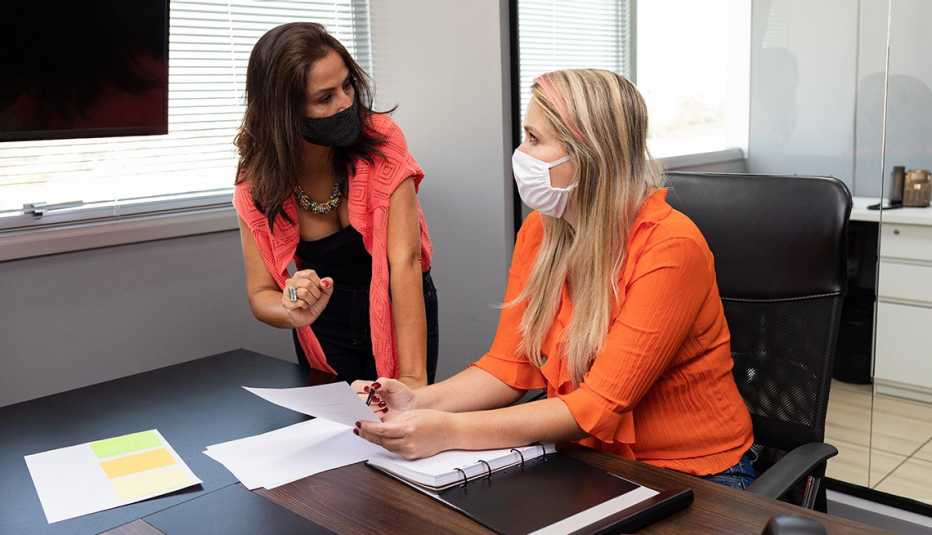Staying Fit


Whether you're already back in the office or preparing to return, you may have questions about the safety of your workspace. And a fair amount of that concern may have to do with how many people in your office have been vaccinated. According to MassMutual's Consumer Spending & Saving Index, which measured attitudes and behaviors about returning to the office, nearly one-fourth of U.S. office workers (24 percent) are stressed about colleagues who haven't been vaccinated. And 27 percent worry about their offices not adhering to COVID-19 safety guidelines.
While it may be possible to simply come out and ask coworkers about their status, it's a good idea to think about a few things before doing so, says industrial organizational psychologist Adam Bandelli, managing director of New York City-based consulting firm Bandelli & Associates and author of What Every Leader Needs. “It's important for everyone's safety and well-being to know what's going on in their workplace,” Bandelli says. But determining how to get the information you need to feel comfortable while not alienating others in the office can be tricky.


AARP Membership— $12 for your first year when you sign up for Automatic Renewal
Get instant access to members-only products and hundreds of discounts, a free second membership, and a subscription to AARP the Magazine.
As you face new expectations about how you should interact with coworkers while also considering your own safety concerns, here are some tips to navigate this tricky situation.
Start with your company policy
Some aspects of office life will require trial and error. Figuring out whether to shake hands or how to navigate a meeting where half the people are remote may require you to make adjustments to your personal etiquette in the office. But one area where the guidance should be coming directly from the company brass is the COVID-19 safety protocol.
In July, the U.S. Justice Department offered its view that federal law doesn't prohibit employers from requiring COVID-19 vaccines as a condition for getting or keeping a job, with exceptions for medical conditions or religious beliefs that prohibit vaccinations. Several state legislatures, however, are considering banning vaccine mandates, and Montana recently enacted a law that does. Your company likely will have a COVID-19 safety and vaccine policy in place based on guidelines from the Centers for Disease Control and Prevention, along with other federal, state and local authorities, says Kelly DuFord Williams, of Slate Law Group in San Diego. Williams says it's best for employees who have questions about the vaccination status of coworkers to address those concerns to specific company representatives instead of approaching coworkers directly, especially because the topic can be so contentious.
But since there's no legal reason employees can't ask about vaccine status, it's likely some will. So, it's also important to set ground rules for behavior, says employment attorney Marta Manus with San Diego-based law firm Marble. Employers shouldn't demand that employees not discuss vaccines or ask about vaccine status because there's nothing in the law preventing that. However, companies should have strong, written policies about behavior expectations, including what constitutes harassment. If vaccine-related questioning becomes hostile or bullying behavior, then it may be in violation of harassment policies and require disciplinary action. “They should just make sure their employment policies regarding harassment and bullying are tight and legally compliant,” she says.

































































More on work
What Every Worker Needs to Know About Vaccine Mandates
Violating employers' COVID-19 vaccination policies could cost employees their jobs — and more15 Work-From-Home Jobs That Don't Require a College Degree
Experience can trump education when it comes to these remote positions
5 Ways the Pandemic Has Changed Job Hunting
Hiring experts tell how looking for work will be different in 2021